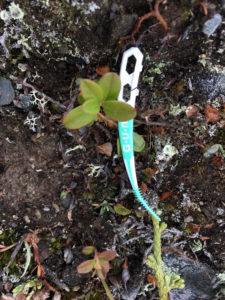Workshop X, Heather Davis, 27 August 2020
Heather Davis shares some ideas about our relationship with plastic which she theorises in her forthcoming book, Plastic Matter. She argues that while our tangible contact with crude oil is almost non-existent, our relationship with plastic is intimate, as plastic is present in our food and in our clothes, for example. Today, plastic is embedded in our culture – it is everywhere. Micro-plastics are pervasive in our environment. What does it mean to have our planet coated in these molecules?
In contrast to Amanda Boetzkes’ research, which focuses on the notion of waste and its relationship with capitalism, Heather’s has a geological focus. Plastic Matter explores how our material relationships have changed because of plastic. Plastic has become a geological figure and is creating a new feedback loop which is influencing the environment.
Certain sensorial experiences have become normalised in our contemporary landscape. The smell of a new car has become a comforting smell for us. However, what about this smell’s toxicity? How has our relationship with petrochemicals transformed our view of beauty?
Heather Davis argues that plastic is part of an engineered scientific effort to create a sealed-off and clean world. Plastic is thus a materialisation of a process which seeks to maintain cleanness and containment. However, plastic eventually enters the natural system. Plastic can offer us a profound lesson about the relationship between the natural and the synthetic worlds. This reflection about the materialisation of plastic goes hand in hand with a discussion of the notion of plasticity. Contrary to what this term might suggest, plastic influences the environment while itself remaining indifferent to the latter.
Trying to link a specific oil rig to a specific piece of plastic is difficult in the same way that tracing plastic objects back to the factory that manufactured them is difficult. This untraceability is at the centre of what Heather Davis calls synthetic universality –how plastic seems to appear from nowhere.
Another key concept in Plastic Matter is petrotime. Heather Davis considers that oil is all about the compression of time. When the energy contained in oil is eventually released it accelerates our time. We are rushing into the future so as to avoid reflection and accountability for the harm we have caused. Our relationship to oil and how we discard plastic after using it just once, are emblematic of this. We need to overcome our inability to be in the present.
plastic I intimacy I geology I materialisation I plasticity I synthetic universality I petrotime


